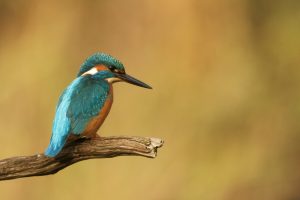Short answer
The average lifespan of a Kingfisher is around 6 to 10 years.
Life expectancy
The average lifespan of a Kingfisher varies depending on the species. However, on average, the lifespan of a Kingfisher is approximately 6 to 8 years in the wild. This relatively short lifespan can be attributed to several factors such as predation, environmental threats, and competition for resources.
Predation plays a significant role in determining the lifespan of Kingfishers. Being brightly colored birds, Kingfishers are more easily visible to predators, making them susceptible to attacks. Additionally, they are often targeted by larger birds such as raptors and snakes, further reducing their chances of survival.
Environmental threats, including habitat destruction and pollution, also impact the average lifespan of Kingfishers. Loss of suitable nesting sites, pollution in water bodies, and depletion of fish populations, which are their primary food source, can all negatively affect their survival rates and lifespan.
Competition for resources with other Kingfishers and bird species can also influence the average lifespan. Kingfishers require access to sufficient food sources and suitable nest sites. When resources become limited, competition intensifies, leading to higher mortality rates and shorter lifespans.
Overall, the average lifespan of a Kingfisher is relatively short due to various factors such as predation, environmental threats, and competition for resources. However, it is important to note that these are general trends and can vary among different species and individual birds within each species.
Some interesting facts about Kingfisher
- The kingfisher, scientifically known as Alcedo atthis, is a small to medium-sized bird belonging to the family Alcedinidae.
- Kingfishers are known for their vibrant and striking plumage, often consisting of shades of blue and green, making them one of the most colorful bird species.
- These birds are excellent fishermen and have a unique hunting technique. They perch on a branch or wire above the water and wait patiently for their prey, mainly small fish. Once they spot a fish, they swiftly dive headfirst into the water to catch it.
- Kingfishers have special adaptations that allow them to hunt underwater. Their eyes are specially equipped with a protective translucent third eyelid that allows them to see through the water. Additionally, they have a sharp, dagger-like bill that is perfect for grabbing and swallowing slippery fish.
- Considered a symbol of peace and prosperity in different cultures, the kingfisher has been associated with various myths and folklore worldwide. For instance, in Greek mythology, it was believed that kingfishers built floating nests to calm the seas during the winter solstice.
Summary
Kingfishers have varying lifespans depending on their species, habitat, and individual circumstances. On average, most kingfishers tend to live for about 5-7 years in the wild. However, some species, such as the belted kingfisher, can live up to 10-15 years. Factors such as predation, disease, habitat loss, and availability of food can greatly influence their lifespan. Additionally, kingfishers in captivity have been known to live longer, with some individuals reaching 20 years or more. Overall, while the lifespan of kingfishers can be relatively short in the wild, they have the potential to live longer in captivity given the right conditions.




